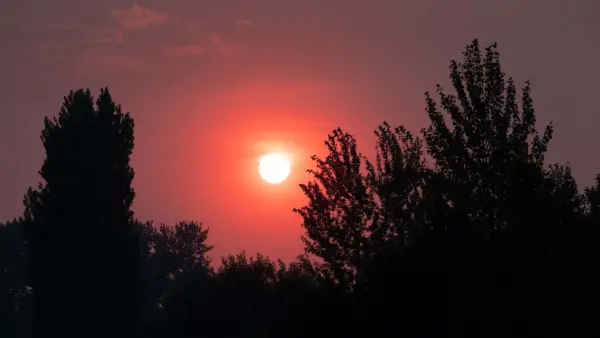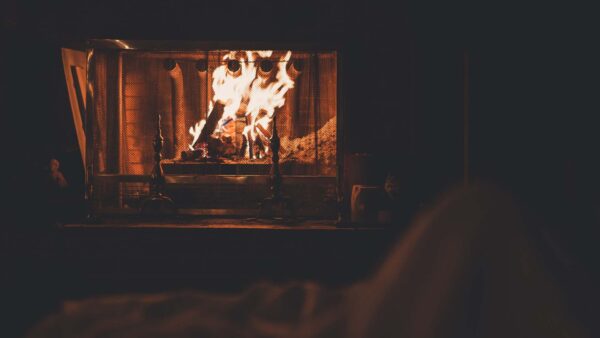Last year was Canada’s worst wildfire season ever recorded. The blazing fires forced over 230,000 people to evacuate their homes and more than 15 million hectares of land burned between the months of April to October.
Unfortunately, the Canadian government has said that this year’s wildfire season could be even worse making it increasingly vital for people to make sure they’re protected against this growing threat.
Insurance coverage is crucial for all homeowners, but especially those whose properties may be at-risk of damage due to wildfire as we enter a “mega wildfire season.”
Why it’s important to regularly review your insurance coverage with a broker
Insurance is, unfortunately, not something that you can purchase once and forget about. Unlike cars, homes tend to increase in value over time. This is influenced by factors like supply and demand, inflation, economic growth, property improvements, land value, and historical market trends. So, the price of your home 10 years ago is likely different today. Consequently, what you insured your home for originally may no longer be sufficient to cover it.
This is where having regular policy reviews comes in handy. A policy review can be conducted with an insurance broker, like Mitch, to stay ahead of possible gaps in coverage, especially in regions that are prone to wildfires. A broker can work with you to assess risk factors and adjust coverage limits accordingly, allowing you (the homeowner) to mitigate financial risks that come with inadequate insurance protection.
Does home insurance cover wildfires?
Yes. Home insurance may cover many things related to wildfire. Home insurance can be broken down into the following categories: dwelling coverage, other building coverage, contents coverage, additional living expenses (or ALE), personal liability, and voluntary medical payments/voluntary property damage. With wildfire, the most important coverage will likely be your dwelling and building coverage, contents coverage, and ALE (if your home is so damaged it cannot be lived in while repairs are being complete – or if you’re forced to leave your home due to an evacuation order).
Dwelling insurance
Property damage coverage or dwelling insurance, can provide compensation for physical damage done to your home’s roof, foundation, walls, floors, etc., due to wildfire. It can also cover outdoor equipment, trees, plants, shrubs, building fittings and fixtures, etc.
Contents insurance
Items in your home damaged in a wildfire may be covered under your contents coverage. There is usually a dollar limit to how much you can claim, and certain belongings – such as jewelry, antiques, cash, etc., – will have their own sub-limits. These limits are listed in your insurance policy. It’s a good idea to keep digital copies of warranties, receipts, and other proof of ownership of your property to ensure you receive a fair and speedy settlement if your belongings are ever damaged in a wildfire (or other insured event).
Additional living expenses (ALE)
ALE coverage provides you and your household with compensation for any necessary additional living expenses during a time where your home is unlivable after a wildfire. You’ll be reimbursed for any necessary expenses beyond what you would ordinarily spend, like clothing costs, takeout, childcare, etc. ALE is used to reduce the financial burden that would otherwise be incurred because of a disaster forcing you to evacuate from your home.
The process for wildfire claims
If your home has been damaged by a wildfire, it’s important to get in touch with your insurer to let them know about your loss. This helps to get the claims process started right away, ensuring you get your settlement faster. If your loss is so severe that you are required to evacuate from your home and find temporary accommodation, be sure to keep all your receipts during this period and file these with your insurer to receive prompt compensation.
Wildfires can slow down the claims process because of their widespread impact. Since your insurance company may be handling numerous claims simultaneously, it’s essential to maintain open communication with them and be thorough in providing documentation. This includes photographs, proof of loss, and receipts, which can significantly speed up the process.
Knowing the details of your policy coverage is also important and can help you understand any gaps in your coverage and/or know when it makes sense to file a claim.
Could wildfire risk make homes uninsurable?
While not an issue in Canada, in California some insurance companies are no longer offering home insurance because of wildfires. With costlier claims and an increase in extreme weather, certain homes in the state will not be insurable due to being located inside what’s known as an “evacuation zone.” While this isn’t the case for any provinces, insurers reserve the right to refuse to increase coverage in “at-risk” areas – they just can’t “cancel” coverage altogether.
Insurance companies can also choose not to offer new coverage in specific “restricted areas,” such as those within evacuation zones or at high risk of wildfires. To make sure they’re following these rules, brokers carefully check maps provided by insurance companies. These maps help them avoid accidentally selling insurance for properties in restricted areas.
These designated restricted areas can change quickly, sometimes overnight, as circumstances like wildfires evolve. It’s crucial for brokers and homeowners to stay updated. This way, they can ensure that insurance coverage remains appropriate for protecting homes and follows safety guidelines.
Have questions about wildfires and your home insurance? Give us a call at Mitch Insurance today and one of our brokers will gladly discuss things with you.
Looking for home insurance?
Speak with a Mitch Insurance broker today to get a quote on home insurance in Ontario.
Call now
1-800-731-2228







